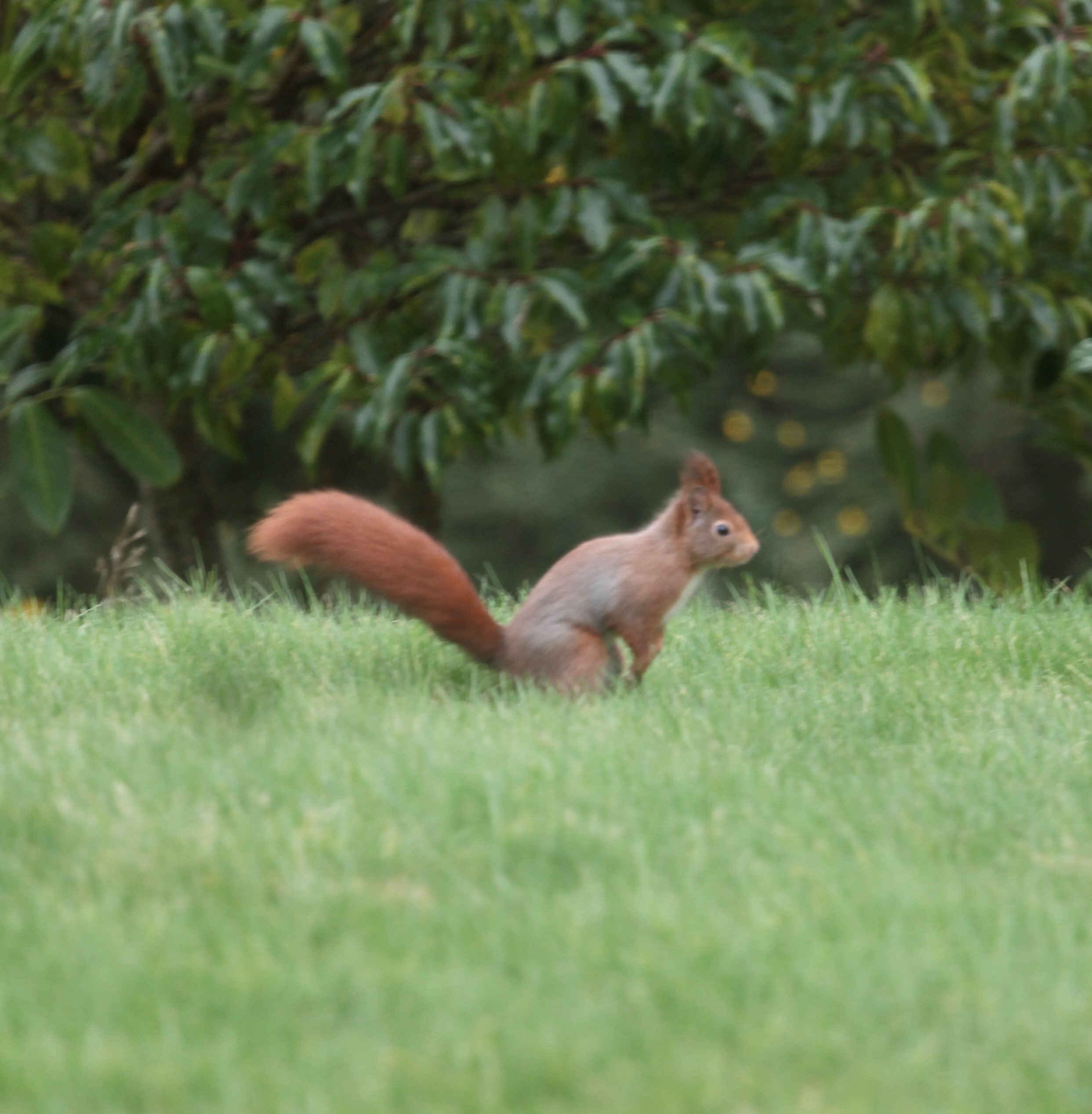
We’ve had sightings of red squirrels snaffling seeds from our bird feeder in recent weeks (please forgive the fuzzy phone pic). The flame-haired little critters have a stronghold on Anglesey, with 60% of the Welsh red squirrel population now to be found on the island. Their numbers are the result of a successful conservation project that combined reintroduction with the eradication of the non-native grey squirrels (hereinafter referred to as evil squirrels), which enabled numbers to increase from 40 to around 700.
Evil squirrels came to these shores in the 1890s, and their rapid expansion led to them replacing the native red squirrels. While their successful invasion was very much enabled by people, they also carried the squirrel pox virus (which was deadly to red squirrels) and were able to out-compete red squirrels for key resources such as food.
Across Europe, evil squirrels are classed as an invasive species. Aside from their impact on the red squirrels, they also cause significant damage to trees by bark stripping – leading to open wounds and damage that can weaken, stress, and even kill trees. In a time when the UK is working to increase its tree numbers and woodland size – particularly to help lock up carbon as part of climate change initiatives – the impact of tree damage is a considerable concern.
Seeing direct evidence of red squirrels flourishing again is fantastic. I’m passionate about rewilding initiatives that aim to return native animals such as otters, beavers, and even wolves to the UK. Rewilding provides us with the opportunity to reset our ecology, reverse species extinction, and help give our ecosystem a boost to start over again. On a grander scale, it’s a chance to try and allay the impact of climate change. I don’t think it’s an overly dramatic statement to say that the future fate of humanity is deeply intertwined with nature. Seeing the return of one species may not seem like much, but markers of positive change at least help us to realize what’s possible.

